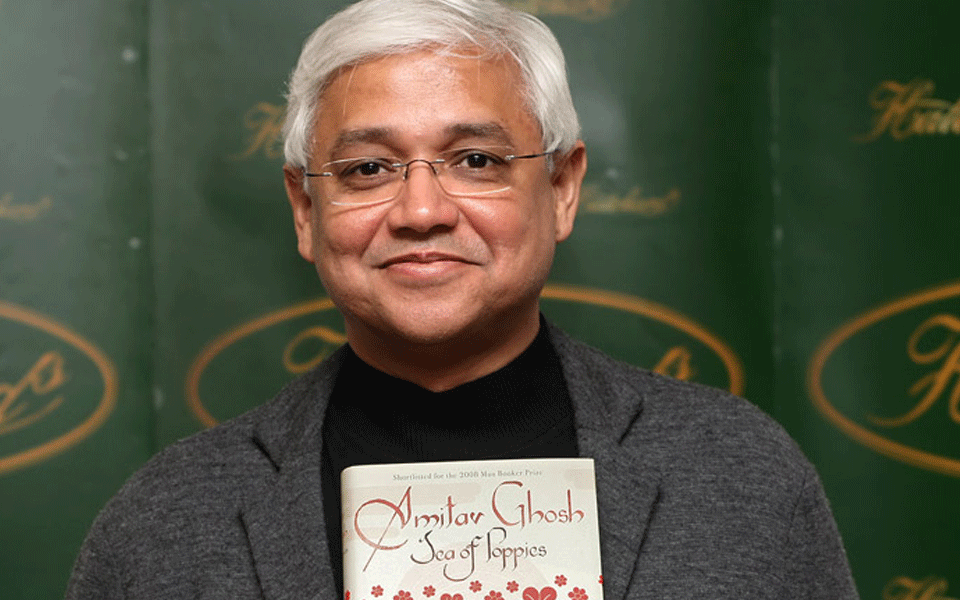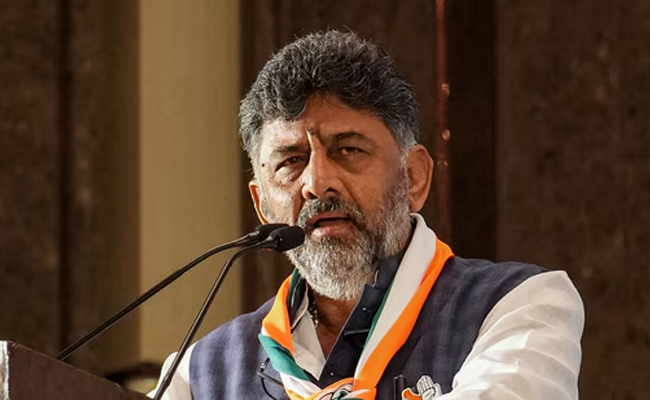New Delhi, Dec 14: Noted English writer Amitav Ghosh has been honoured with this year's Jnanpith Award, a literary award given to an author for "outstanding contribution towards literature", Bharatiya Jnanpith announced Friday.
"Amitav Ghosh is a path- breaking novelist. In his novels, Ghosh treads through historical settings to the modern era and weaves a space where the past connects with the present in relevant ways.
"His fiction is endowed with extraordinary depth and substance through his academic training as a historian and a social anthropologist," a statement from Bharatiya Jnanpith read.
The decision was taken in a meeting of Jnanpith Selection Board chaired by eminent novelist, scholar and Jnanpith laureate Pratibha Ray.
Ghosh, one of the most prominent contemporary Indian writers, is known for a series of novels such as "Shadow Lines", "The Glass Palace", "The Hungry Tide", and Ibis Trilogy -- "Sea of Poppies", "River of Smoke", and "Flood of Fire" -- chronicling the Opium trade between India and China run by the East India Company.
The writer, in a tweet, said he was "honored and humbled".
In another tweet responding to a fan, he said, "this is an amazing day for me. I never thought I would find myself on this list, with some of the writers I most admire."
Born in Kolkata in 1956 to a Bengali Hindu family, the 62-year-old author currently lives in New York with his wife Deborah Baker.
Ghosh, who spent his formative years in India, Bangladesh and Sri Lanka, studied in Delhi, Oxford and Alexandria.
His most recent book, "The Great Derangement; Climate Change and the Unthinkable, a work of non-fiction", was released in 2016.
Ghosh is also recipient of the Padma Shri and Sahitya Akademi Award.
Some of the biggest Indian writers have been awarded with this prestigious literary recognition. Major names among the 58 recipients include literary icons Krishna Sobti, Kedarnath Singh, Shrilal Shukla, Nirmal Verma, Girish Karnad, Mahasweta Devi, Amrita Pritam and U R Ananthamurthy.
Let the Truth be known. If you read VB and like VB, please be a VB Supporter and Help us deliver the Truth to one and all.
Gorakhpur (PTI): A hospital employee was booked for allegedly sexually assaulting a woman in the pretext of an ultrasound test here in the district women's hospital, police said on Saturday.
According to the complaint, the woman, a resident of the Gulriha area, visited the district women's hospital on Thursday morning for an ultrasound test.
She was directed to a room, where Abhimanyu Gupta was conducting ultrasounds. When her turn came, the accused allegedly stared at her and told her to remove all her clothes, claiming it was necessary for the test and that a massage would also be required, she said.
ALSO READ: UP: Girl kidnapped, raped multiple times over 25 days; accused held
The woman alleged that once she complied, the accused began making obscene advances and tried to force himself on her. When she screamed, he allegedly gagged her, abused her and threatened to kill her before pushing her out of the room.
She said her complaints within the hospital went unheard, forcing her to approach the police.
Taking cognisance of the complaint, the hospital administration constituted a three-member inquiry committee, officials said.
Senior consultant (paediatrics) Dr Jay Kumar said, "The woman has levelled serious allegations against a staff member. Senior officials have been informed, and a departmental inquiry is underway. Strict action will be taken if the charges are proved."
Kotwali Station House Officer Chatrapal Singh said a case has been registered, and efforts are on to nab the accused.





